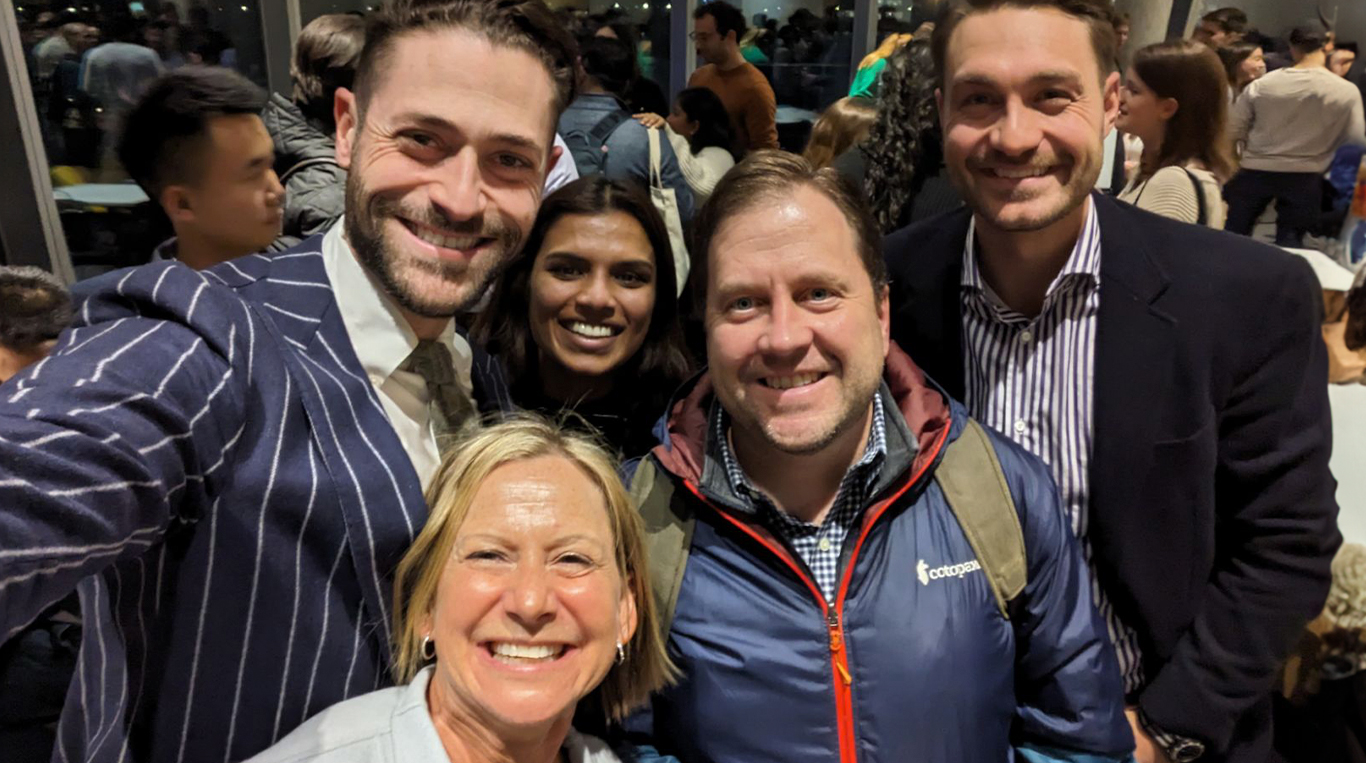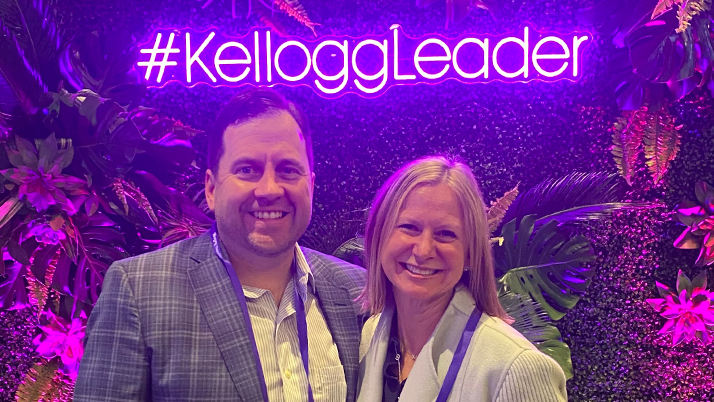Boosting the next generation of healthcare entrepreneurs

By Deborah Soriano
Meeting on the ‘L’ to a White Sox game during their orientation week as Kellogg MBA students, Katie Arnold ’02 MBA and Evan Norton ’02 MBA could not have foreseen their future: falling in love, getting married and one day coming back to Kellogg as faculty members to develop and co-lead a course.
But that’s exactly what happened.
The course, Medical Product Financing and Commercialization, has been another perfect match, this time between the two alums and their alma mater. Arnold and Norton teach students the tools needed to assess and develop business strategies for early-stage medical products – requiring them to pitch the products to a panel of venture capitalists, Shark Tank-style.
Now over 10 years old, the course has sparked some significant success stories, including one company that was acquired for $140 million.
“A lot of people who come up with the ideas of companies don’t actually want to run companies,” Norton says. “They want to keep working in their labs and keep doing research. I think this gap exists in most university settings where you need what I call, ‘business founders’ or ‘business entrepreneurs.’ Our class is creating those folks.”
After graduating from Kellogg, Norton and Arnold moved to the Bay Area for nearly a decade. Arnold started SPRIG Consulting, working with early-stage physicians, medical engineers and researchers to help them bring their technologies to market. When they returned to Chicago, Alicia Löffler, one of Arnold’s mentors who founded Northwestern’s Innovation and New Ventures office (INVO), encouraged Arnold to start a course at Kellogg based on her work. Norton joined Arnold two years later, bringing his expertise in venture capital to the curriculum.
In the course, they focus on helping students tell the story of a medical product concisely and cohesively, making it sticky or memorable. Even though the technology is not theirs, Arnold says they encourage students to “own” the idea and act as the CEO.
“How would you tell this story so that you can get that next round of financing?” Arnold says. “We’re giving the students a chance to see what it feels like to have that Shark Tank moment and ask for money.”
The biggest challenge for healthcare entrepreneurs, Norton says, is raising capital. He says they tell students not to view “sales as a dirty word.”
“Everyone is afraid of selling because it puts them in a position where they’re uncomfortable, but it has immense value,” Norton says. “Every job ultimately turns into sales.”
Over the last 10 years, Arnold and Norton have continued a strong partnership with Northwestern’s INVO office, which can take the business plans created in the course and help commercialize the ideas.
Alexei Mlodinow ’16 MD, MBA, a student in the MD-MBA Program, formulated a business plan through the class for a prosthetic breast support product invented by Dr. John Kim, a plastic surgeon at the Feinberg School of Medicine. The product was designed to help mastectomy patients facing breast reconstruction and was an innovative alternative to the other products out there. Mlodinow incubated the company with INVO, rolled out his own company along with Kim and fellow Kellogg alum Todd Cruikshank ’17 MBA, who he met in the course, and then sold it to publicly-traded Integra LifeSciences Holding Corporation for up to $140 million in December 2022.
Another success story from the class is tech company NICU2Home. Based on the research of Feinberg professors Dr. Craig Garfield and Young Seok Lee, the company’s smartphone app provides critical education to parents of newborns in the Neonatal Intensive Care Unit (NICU) to help improve outcomes among these littlest patients.
“If you can educate the parents along the way while the children are in the NICU and then help to prepare the handoff for when they go home, you can have the parents do a better job of keeping them at home versus having them required to come back to the hospital,” Norton explains. The course helped transform Garfield’s research into a commercial opportunity, and NICU2Home was acquired by NICU-focused technology firm AngelEye this past April.
Norton and Arnold note that the course draws a unique blend of students: About 60% are MBA students, but the remainder come from other NU graduate schools – medicine, engineering, law, and more – allowing students to learn to work in truly interdisciplinary teams.
The two are also starting a healthcare venture and growth equity fund with another Kellogg alum, Rebecca Raabe ’13 MBA, to help bring promising medical technology companies to the marketplace.
Arnold and Norton say they’ve now built an alumni network of 300 people who have taken the course.
“One of the parts of the job we love the most is that we end up placing a number of students in their permanent jobs, post business school,” Norton and Arnold both share. “We are excited about the quality of the companies and the ideas that are now coming out of Northwestern.”
Read next: How this startup CEO found his path to healthcare entrepreneurship

